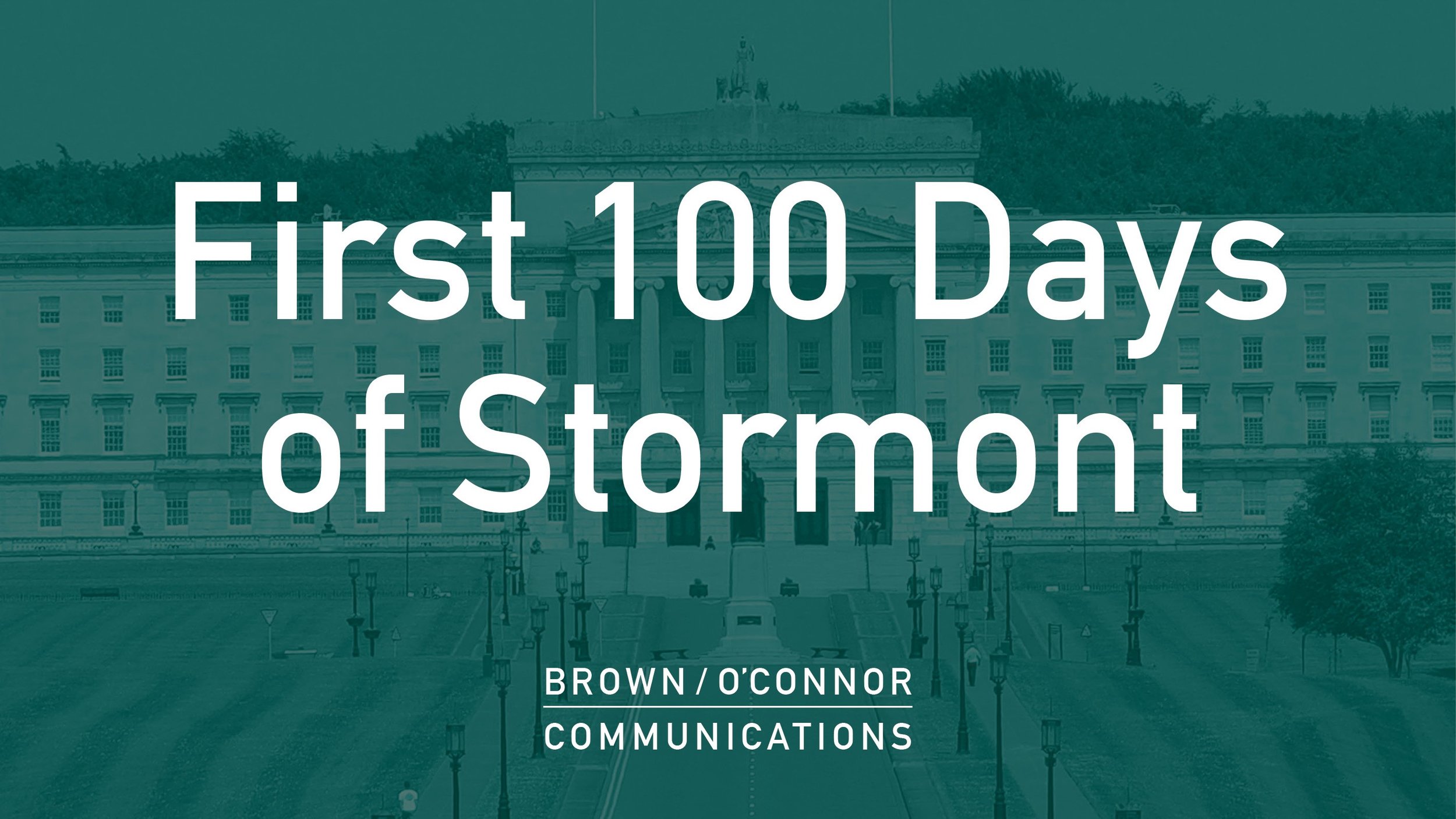Monday, May 13 will mark 100 days since the return of Northern Ireland’s political institutions in February. Odrán Waldron looks at the events that have defined the first 100 days on the hill.
With the SDLP opting for opposition, a position they had long since flagged, four parties – Sinn Féin, the DUP, the Alliance Party, and the UUP – formed the new Executive. There have been green shoots of hope since Michelle O’Neill was confirmed as the first Nationalist to be elected First Minister and Emma Little-Pengelly was confirmed as deputy First Minister. Taking to the home pitch of junior minister Aisling Reilly, St Paul’s GAC in west Belfast, the First and deputy First Minister partook in some camogie before a Q&A with the young camógs of St Paul’s. Dubbed the Sliotar Sisters, this event coupled with the visit of Education Minister Paul Givan to Gaelscoil Aodha Rua in Dungannon, served to allay any fears that the strained cross-community relations that characterised the end of the last Executive would repeat themselves in the early days of the new regime.
The early days also saw Minister for the Economy Conor Murphy beating a well-worn track around the province to promote his four economic priorities: the creation of good jobs; the promotion of regional balance; the improvement of productivity; and the reduction of carbon emissions. While Murphy has since had to temporarily step aside for health reasons, these four principles will guide the work of his party colleague and interim replacement, Deirdre Hargey.
Financial pressures have remained the biggest issue at hand since the resumption of the Executive and Assembly, which came on the heels of the largest public sector strikes ever seen in Northern Ireland. These pressures were seen to come to a head in April when Minister of Health Robin Swann voted against the Budget brought forward by Minister of Finance Caoimhe Archibald.
Despite the Department of Health being allocated £7.76 billion of the £14.5 billion budget, Swann, who is expected to be replaced as Minister of Health by party colleague Mike Nesbitt once campaigning for a general election begins, has warned of “incredibly serious consequences” without an additional £1 billion for his department. The First and deputy First Ministers were united in expressing regret about the situation, but Little-Pengelly stated that such funding for Health would “have consumed the entirety of what additional was available for the budget”. Given the Northern Ireland Fiscal Council’s warning in 2022 that health spending need could eventually account for 77% of current block grant totals, the impasse that we are currently seeing was perhaps inevitable without major overhauls to revenue raising.
Legislatively, it has been a slow start to proceedings, with just one bill – the Hospital Parking Charges Bill – having made its way past Final Stage thus far. The first 100 days have also not been without controversy: Alliance MLA Patrick Brown resigned his seat in April and was replaced by Andrew McMurray; and deputy speaker Steve Aiken will serve a suspension on the 100th day since Stormont’s return for breaching the confidentiality of the Assembly complaints process in November 2020.
The stability of the new Executive has been tested – not least by the removal of Jeffrey Donaldson as DUP leader following his arrest – and will likely be tested again with possible fallout from the Covid Inquiry and the Northern Ireland Fiscal Council due to publish its assessment of the budget on May 14. The budget is then expected to be put to an Assembly vote by the end of the month. With business confidence up and plans being laid for the tackling of the myriad problems facing the public sector, that stability will be needed long-term to deliver something that has long eluded this region: normality.

